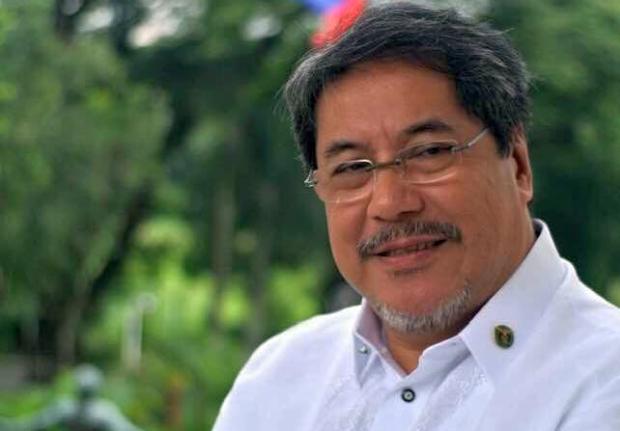
National Task Force against COVID-19 adviser Dr. Teodoro Herbosa. (Photo from his Facebook account)
MANILA, Philippines — “Long COVID,” which has beguiled both doctors and patients who have fully recovered from the severe respiratory disease in other countries, is now also afflicting Filipinos, a health expert said on Saturday.
“Doctors in our country’s hospitals are starting to see cases of long COVID,” Dr. Ted Herbosa, an adviser to the National Task Force against COVID-19, said at the Laging Handa briefing.
Herbosa did not provide further details but he said people with long COVID experience inflammation of the heart and suffer “brain fog.”
“We are monitoring and recording it. We will also register it and we will count and study it so that we will know the situation of long COVID in the Philippines,” he said.
The World Health Organization (WHO) earlier said people who contracted the virus could experience post-COVID-19 conditions, such as fatigue, shortness of breath, chest pain, persistent cough, trouble speaking, muscle aches, loss of smell or taste, and fever.
In addition, they also could suffer from sleeping problems, cognitive dysfunction like confusion, forgetfulness, or a lack of mental focus and clarity, and even psychological effects like depression and anxiety, which affect their daily lives, the WHO said.
10% to 15%
It was the first time that a Filipino health authority has confirmed long COVID among Filipinos, although in January this year, Health Undersecretary Leopoldo Vega warned that 10 percent to 15 percent of COVID-19 patients might be afflicted.
Vega said that if an individual who recovered from COVID-19 still had health issues after 30 days, the person may have long COVID.
This post-COVID-19 condition entails mid- or long-term effects, which current evidence suggests, is experienced by around 10 percent to 20 percent of people who recover from COVID-19, according to the WHO.
The symptoms usually appear within three months from the onset of COVID-19, lasting for at least two months and cannot be explained by an alternative diagnosis. These can come and go or relapse over time.
While the WHO said there is currently no specific medication therapy for people with this post-COVID-19 condition, data suggest that holistic care like rehabilitation can be helpful. Trisha (not her real name) experienced the same post-COVID-19 symptoms and was told by her cardiologist that she could be experiencing long COVID.
She used to run and exercise daily before she contracted mild COVID-19 in April last year.
Routines tire her easily
But two months after she got the virus, she could no longer perform her routine exercises, like running. She easily gets tired now and occasionally experiences shortness of breath. Trisha recalled that in June 2021 as she was starting to do the laundry, she experienced chest pain and difficulty breathing.
At Makati Medical Center, she was found negative for the coronavirus according to results from a reverse transcription-polymerase chain reaction (RT-PCR) test.
Her X-ray and electrocardiogram results were also both normal. Trisha also consulted a pulmonologist and a cardiologist to rule out any other related illnesses.
‘Like I was drowning’
“After I experienced chest pain, I was no longer at peace at night. I couldn’t sleep well because every time I went to bed, I felt like I was drowning,” she said, adding that she also developed anxiety due to her sleep problem.
Prior to contracting COVID-19, Trisha said she had no health problems and was sleeping well.
In January this year, she said she again had shortness of breath and experienced a panic attack.
“I am no longer like before. Before I got COVID-19, I used to do daily exercises like running. But now, I can’t even run. I could only walk but I could not walk that far,” she told the Inquirer.
Trisha said she now avoids doing extreme physical activities so as not to trigger the post-COVID-19 symptoms she experienced, such as shortness of breath and chest pain.
She is fully vaccinated.
Herbosa urged the public to get vaccinated and have a booster shot, saying that the government has enough supply of vaccines.
The Department of Health (DOH) on Friday said about 40.6 million Filipinos who were already eligible for a booster shot have yet to get the jab.
The DOH is targeting to vaccinate 77 million Filipinos against COVID-19 by the end of June, or when President Duterte’s term expires.
—WITH A REPORT FROM INQUIRER RESEARCH
RELATED STORIES
Most long COVID-19 patients will recover, but those with severe symptoms should seek help–experts
‘Long COVID’ possible in 10- 15% of infected persons — DOH
‘Long COVID’ from Omicron coronavirus variant possible, say experts